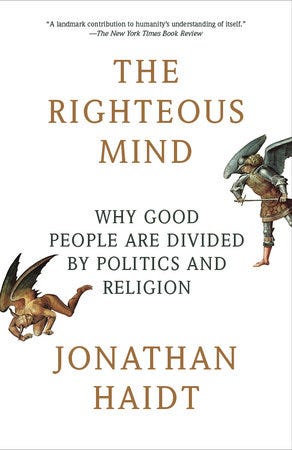They're Not Murderers Or Nazis
As a non-American, it was extremely disturbing for me to see the extraordinary rift growing over the last few years between Americans of different political persuasions. I know people on both sides, convinced that Trump was the best/worst president ever, and that people opposing/supporting him were morally bankrupt.
A similar rift is developing on the extremes of the vaccine issue. The mainstream scientific view is that vaccines are safe and should be used by adults, and that masks somewhat reduce the chances of spreading infection; separately, there are also policy decisions regarding how much to impose such things as vaccines, masks and lockdowns and how to weigh them up against other factors (especially regarding children). There are those who disagree with various scientific aspects, or who are misinformed on science aspects, or who disagree with various policy decisions. The extreme view on one side is that anyone who is against the vaccine or who believes that the minimal risks of Covid to children do not justify taking precautions, is utterly evil and should be labelled as a murderer. Conversely, the extreme view on the other side is that anyone who wants to impose precautions, especially on children, that have very little effect of limit infection, is utterly evil and is acting like the Nazis.

I just finished reading an absolutely incredible book that helps enormously with making sense of such things. It's called The Righteous Mind, by social psychologist Jonathan Haidt, and the subtitle is Why Good People Are Divided By Politics And Religion - to which one could add, And Coronavirus. The book has enormous ramifications for many different topics that have been discussed here, which I plan to discuss in future posts. For now, I will just describe one of the main themes.
The author explains how, as a left-wing atheist, he used to think that right-wing and religious people are foolish and evil. However, after studying various cultures in different parts of the world, he realized that morality is a much more complicated topic than he had assumed. Rather than there being a single linear scale along which one can measure good/bad, he identifies six different spheres of morality: Care/Harm, Fairness/Cheating, Loyalty/Betrayal, Authority/Subversion, Sanctity/Degradation, and Liberty/Oppression. These can sometimes conflict with each other, and there are also differences in the relative weight that people attribute to these different spheres - which has to do not only with cultural variations, but also genetic makeup.
I cannot recommend this book highly enough. And if you think that it sounds like a stupid book, because the people on the other side of the political/ religious/ coronavirus spectrum really are stupid and evil, then this is all the more reason why it is important for you to open your mind and read it.
If you'd like to subscribe to this blog via email, use the form on the right of the page, or send me an email and I will add you.


